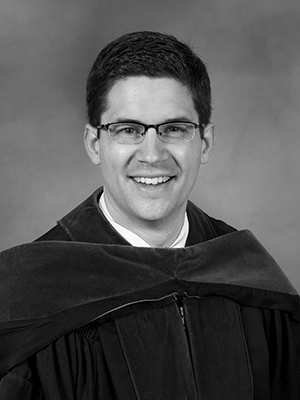Career Advising Resources
- Doctor of Medicine Licensing Disclosure
- SOM Students Home
- Calendars and Schedules
- Campus Resources
- Current Students
- Career Advising Resources
- Educational Contacts and Links
- Extramural Applications and Visiting Students
- More about the School of Medicine
- Prospective Students
- Student Life and Organizations
- Student Support Resources
2012 Match Day Speech

On behalf of the University of Mississippi School of Medicine Class of 2012, I'd like to welcome you to Match Day. Four years ago, the summer before starting medical school, I remember telling my family about our first white coat ceremony. They wanted to know if they could come. I told them no, but they could come to Match Day. They asked, "When is match day?" I answered—"In four years." Of course, the next question was, "Well, what is Match Day?"
I explained that fourth-year medical students, after choosing the branch of medicine they would like to train in, interview at a number of programs across the country. Then, they make a list of all the places they visit, ranking them in order from where they would most and least like to train. The programs make a similar list of interviewees. Both lists go into a computer, which runs an algorithm to determine the best match for everyone. Then, one day in March, fellow classmates, family and friends, administrators, faculty and teachers come to a program. Students are called up one at time at random to a platform, are given an envelope containing his or her match, and read it out on a microphone in front of everyone. Basically, it's a combination of the Academy Awards and the NFL draft for nerds. Twelve years of primary school, four years of college, and four years of medical school and the next phase in our lives all comes down to the contents of an envelope, a microphone, and a room full of people. Everyone that I've explained this to always has the same reaction, "That sounds terrifying…" And I think I speak for most of us when I say now that the day has arrived, it is.
Not all medical schools do Match Day like we do. Some just get the students in a big room and open envelopes at the same time. Others have a party later in the evening after everyone has gotten results by e‐mail. After my initial shock at thinking our tradition must have been concocted by someone trained in psychological warfare, I thought about why we might do our match this way and why so many choose to participate even though we are given the option not to. The reason I can think of is that this is a moment we want to share because, on some level, we know it belongs to more than just us as medical students.
Today, in this room, there are administrators, people like Dr. Keeton, Dean of the School of Medicine, Dr. Helen Turner, Associate Vice Chancellor for Academic Affairs, Dr. Woodward, Vice Dean of the School of Medicine, and Dr. Jackson‐Williams, Associate Dean of Academic Affairs, that take care of hundreds of things every week behind the scenes to make sure we have the best medical school education and experience possible. There is Dr. Jerry Clark and Mrs. Virginia Covington of the Office of Student Affairs that are always available to hear our complaints and fix our problems. There are chairmen, faculty, and staff of clinical and basic science departments that work to teach us a lot of information as effectively as possible. There are people whose names we don't even know and who we have never met that work in all these aforementioned offices that work to help us daily. And, of course, there are our parents, grandparents, brothers and sisters, and other friends that are practically family. People that have listened patiently to us complain over the past four years about things they never wish they heard of, like STEP1 and STEP2 and all manner of graphic medical school experiences that we no longer realize are inappropriate for dinner table conversation.
When we sit down and think about it, we realize we had a lot of help in getting to this point. And while we are both terrified and excited about what is in our envelope, we know we are in a room full of people that have proved, over four years of medical school, and many of you, over much of our lives, that they are pulling for us. Thank you for your part in getting us this far and for being here to share this moment.
– Josh Hughes, M4 Class President


